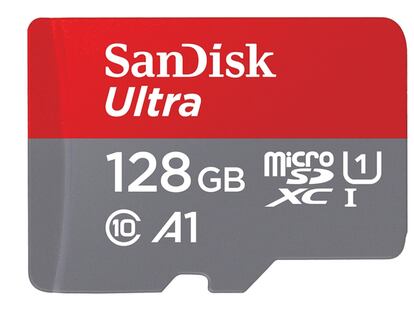Cable sobre las complejas relaciones comerciales con Ir¨¢n
El telegrama cita a un contacto turco que asegura que es necesario tener un enlace en Teher¨¢n para hacer negocios
| ID: | 230177 |
| Date: | 2009-10-19 06:28:00 |
| Origin: | 09ISTANBUL399 |
| Source: | Consulate Istanbul |
| Classification: | SECRET |
| Dunno: | 09ISTANBUL279 09ISTANBUL336 09ISTANBUL394 |
| Destination: | VZCZCXRO3102 PP RUEHBC RUEHDE RUEHDIR RUEHKUK RUEHTRO DE RUEHIT #0399/01 2920628 ZNY SSSSS ZZH P 190628Z OCT 09 FM AMCONSUL ISTANBUL TO RUEHC/SECSTATE WASHDC PRIORITY 9287 INFO RUCNIRA/IRAN COLLECTIVE PRIORITY |
S E C R E T SECTION 01 OF 02 ISTANBUL 000399 SIPDIS LONDON FOR MURRAY; BERLIN FOR ROSENSTOCK-STILLER; BAKU FOR MCCRENSKY; BAGHDAD FOR POPAL; ASHGABAT FOR TANGBORN; DUBAI FOR IRPO E.O. 12958: DECL: 10/09/2029 TAGS: ECON SUBJECT: IRAN-TURKEY COMMERCE: AN "INSIDER" SAYS ITS ALL WHO YOU KNOW REF: A. (A) ISTANBUL 279 (NODIS B. NOTAL) (B) ISTANBUL 336 (C) ISTANBUL 394 Classified By: Deputy Principal Officer Win Dayton; Reason 1.5 (d) 1. (S) Summary: A Turkish businessman who deals extensively in Iran told us that the only way to do business there safely is through an Iranian partner with high-level regime connections, in his case a partner he claims is connected to the son of Supreme Leader Khamenei. Our contact cautioned that two state-owned Turkish banks -- Halk and Ziraat -- are exploring opening up branch offices in Tehran to give Turkish businesses a banking option other than Bank Mellat. Our contact is working with the Tehran municipality to open a new shopping mall, which has brought him into close contact with Tehran Mayor Qalibaf's staff. Those interlocutors told him that Qalibaf is already setting himself up to be the establishment's choice for president in 2013. Our contact also urged the USG to "make a deal" with Iran soon, because "time is running out", hinting that Khamenei's health is a concern, and that the succession of a new Leader could lead to a period of instability inconducive to engagement between Iran and the U.S. Comment: We cannot confirm the veracity of our contact's claims that his business partner is close to the Khamenei family, but that Iranian partner's claims are at least plausible. We also have no basis to judge his claims of failing health on the part of Supreme Leader Khamenei, beyond having heard similar rumors from other contacts. We give serious credence to our contact's claim that for a foreign company to do business effectively in Iran, it needs to have a regime-affiliated partner or protector working on its behalf within the system. End summary. An insider's perspective ---------------------- 2. (C) We met recently with Keyhan Ozdemir (please strictly protect), a director of Pars-Invest, a Turkish company with construction, real estate, and energy investments in Iran. Ozdemir claims to have Iranian business partners with direct connections to Supreme Leader Khamenei's family, including an Iranian business partner who claims a close personal connection to Khamenei's son Mojtaba. Ozdemir does not participate in Turkish business-sponsored conferences or trade fairs with Iranian counterparts, such as the early October Turkey-Iran Business Council (TIBC) conference (ref C), dismissing them as "window dressing". Instead, he candidly asserted to us that to get deals done in Iran a foreign company needs a well-connected Iranian "protector", preferably a partner with IRGC or Supreme Leader connections. Reinforcing that point, Ozdemir explained that the Turkey-Iran commerce has slowed down considerably in 2009 in large part for three reasons, two political and one economic: (1) Most Turkish companies, which are not politically "plugged-in" inside Iran, drew back from Iranian investment following the June elections out of fear of political risk. "These are the companies that need trade associations like the TIBC to make introductions for them." (2) Turkish companies that had been well connected to former President Rafsanjani's business empire have been edged out since June by IRGC companies and by IRGC-affiliated Bonyads (politically-connected charitable foundations that act as holding companies), and (3) Turkey's investment of Iranian hydrocarbons has been down significantly in 2009. On the other hand, Ozdemir concurs with the conventional wisdom that Turkey-Iran trade will increase in the remainder of 2009 and into 2010. He says he is optimistic that his own biggest pending deal -- to develop a modern shopping mall in Tehran -- will soon receive funding approval from the Tehran municipality, reflective of the Iranian economy's resiliency even in hard times. 3. (C) The key sector to watch, according to Ozdemir, is the banking sector, as Turkish-Iran trade cannot expand significantly without more efficient banking cooperation. Ozdemir told us that Turkish state-owned banks Halk and Ziraat have been quietly seeking Turkish and Iranian government permission to open bank branch offices in Tehran. (Halk and Ziraat already have small "representative offices" in Tehran, he claimed, but these offices do not perform banking functions.) The primary function would be to offer banking services to Turkish companies and investors in Iran, to give them a banking option other than Bank Mellat, the lone Iranian bank that operates in Turkey. According to Ozdemir, the GoT has cautioned Halk and Ziraat to "go slow" until it becomes more clear whether international diplomacy with Iran succeeds or fails, and thus whether the risk of significantly tougher banking sanctions on Iran lessens or ISTANBUL 00000399 002 OF 002 increases. Most of Ozdemir's deals in Iran are paid in Euros, as "Iranians prefer Euros to (Turkish) Lira and Turks definitely don't want (Iranian) Rials." 4. (C) Regarding Iran's approach to privatization, Ozdemir asserted that privatizing certain sectors is a genuine priority for Khamenei, though he does not want to push the bureaucracy (including the IRGC) too hard. According to Ozdemir, Khamenei is willing to continue to push for so-called privatization in the petrochemical industry, electricity production and distribution, transportation, "some" shipping and banking, and some Bonyads. But Ozdemir underscored that Khamenei is committed to keeping the telecommunications and hydrocarbon sectors is "safe hands." The chief problem is that Iranian decision-makers "don't understand what privatization means." Selling a state-run bank or a telecommunications company to a holding company that itself is controlled by regime entities (per ref C) "is not privatization." Ozdemir said that Tehran Mayor Qalibaf, alone among Iran's top leadership, understands and supports the western concept of privatization and the need for Iran to have a stronger private sector. Qalibaf already running for 2013 Presidential elections --------------------------------------------- -------- 5. (C) From discussions with Tehran municipality officials reporting directly to Tehran Mayor Qalibaf, Ozdemir assessed that Qalibaf is already in full campaign mode for the 2013 Iranian Presidential election. Qalibaf is actively maneuvering behind the scenes to lock in support from Supreme Leader Khamenei, and indeed Qalibaf's decision not to run in the June election this year was based on an unspoken understanding that staying out this time would position him well to be the establishment's preferred choice next time. According to Ozdemir, Qalibaf is using the benefits of his office to build a sizable war-chest of campaign funds, though he is careful to ensure that his and his staff's "energetic" collection of such funds does not adversely impact Tehran's municipal services or other operations, or his reputation as an effective manager. "Time is Running Out" to make a deal with Khamenei --------------------------------------------- ----- 6. (C) Turning to a brief discussion of current diplomacy vis-a-vis Iran, Ozdemir urged the USG to "make a deal" with Iran soon, because "time is running out". He hinted that Ayatollah Khamenei's health is a concern. Khamenei wants to ensure a smooth succession for his son, Mojtaba, to succeed him, but Ozdemir assessed that the installation of a new Supreme Leader in Iran, if it becomes necessary in the coming year or two, could lead to a period of instability that would be inconducive to engagement between Iran and the U.S. Comment ------ 7. (S) We cannot confirm the veracity of Ozdemir's claim that his Iranian business partner is personally close to Mojtaba Khamenei, although we have met that Iranian business partner (ref A) and can confirm that his claims to a Khamenei family connection are at least plausible. We also have no basis to judge Ozdemir's claims of failing health on the part of Supreme Leader Khamenei, beyond having heard similar rumors from other contacts (Ref B). We give serious credence to Ozdemir's claim that for a foreign company to do business effectively in Iran, it must have a regime-affiliated partner or protector working on its behalf within the system. WIENER |
Traducci¨®n autom¨¢tica. Puede que el texto traducido no sea fiel al original
Tu suscripci¨®n se est¨¢ usando en otro dispositivo
?Quieres a?adir otro usuario a tu suscripci¨®n?
Si contin¨²as leyendo en este dispositivo, no se podr¨¢ leer en el otro.
FlechaTu suscripci¨®n se est¨¢ usando en otro dispositivo y solo puedes acceder a EL PA?S desde un dispositivo a la vez.
Si quieres compartir tu cuenta, cambia tu suscripci¨®n a la modalidad Premium, as¨ª podr¨¢s a?adir otro usuario. Cada uno acceder¨¢ con su propia cuenta de email, lo que os permitir¨¢ personalizar vuestra experiencia en EL PA?S.
En el caso de no saber qui¨¦n est¨¢ usando tu cuenta, te recomendamos cambiar tu contrase?a aqu¨ª.
Si decides continuar compartiendo tu cuenta, este mensaje se mostrar¨¢ en tu dispositivo y en el de la otra persona que est¨¢ usando tu cuenta de forma indefinida, afectando a tu experiencia de lectura. Puedes consultar aqu¨ª los t¨¦rminos y condiciones de la suscripci¨®n digital.
































































